Luiz Pizzato
Detection of Abuse in Financial Transaction Descriptions Using Machine Learning
Mar 10, 2023Abstract:Since introducing changes to the New Payments Platform (NPP) to include longer messages as payment descriptions, it has been identified that people are now using it for communication, and in some cases, the system was being used as a targeted form of domestic and family violence. This type of tech-assisted abuse poses new challenges in terms of identification, actions and approaches to rectify this behaviour. Commonwealth Bank of Australia's Artificial Intelligence Labs team (CBA AI Labs) has developed a new system using advances in deep learning models for natural language processing (NLP) to create a powerful abuse detector that periodically scores all the transactions, and identifies cases of high-risk abuse in millions of records. In this paper, we describe the problem of tech-assisted abuse in the context of banking services, outline the developed model and its performance, and the operating framework more broadly.
Reciprocal Recommender Systems: Analysis of State-of-Art Literature, Challenges and Opportunities on Social Recommendation
Jul 17, 2020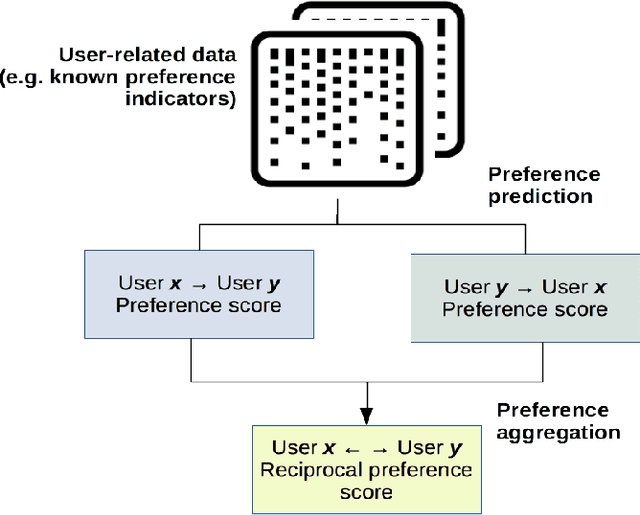
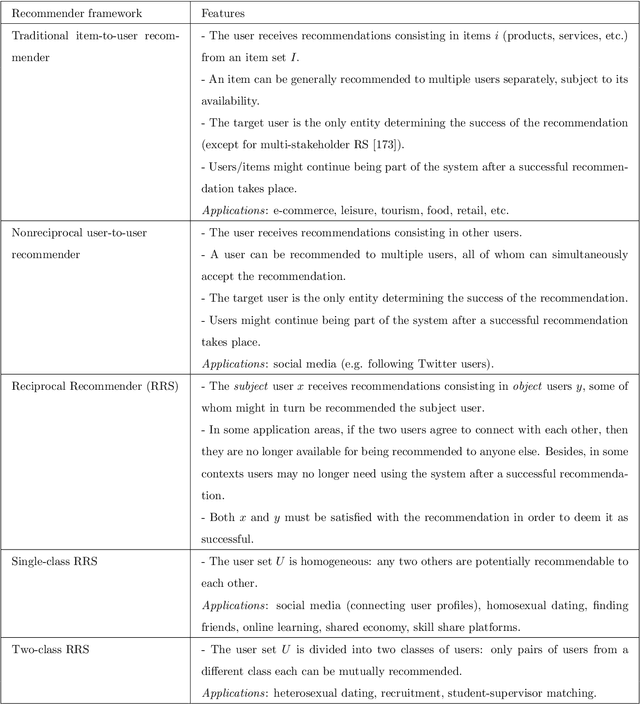
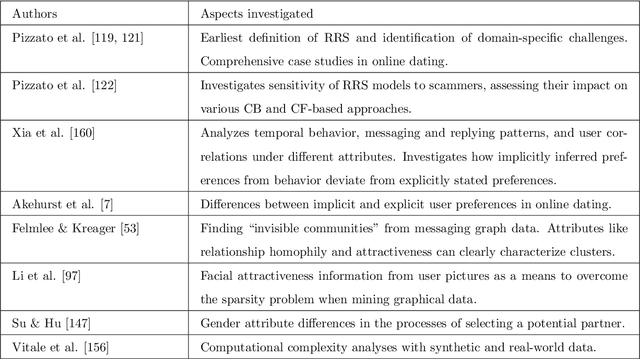

Abstract:Many social services including online dating, social media, recruitment and online learning, largely rely on \matching people with the right people". The success of these services and the user experience with them often depends on their ability to match users. Reciprocal Recommender Systems (RRS) arose to facilitate this process by identifying users who are a potential match for each other, based on information provided by them. These systems are inherently more complex than user-item recommendation approaches and unidirectional user recommendation services, since they need to take into account both users' preferences towards each other in the recommendation process. This entails not only predicting accurate preference estimates as classical recommenders do, but also defining adequate fusion processes for aggregating user-to-user preferential information. The latter is a crucial and distinctive, yet barely investigated aspect in RRS research. This paper presents a snapshot analysis of the extant literature to summarize the state-of-the-art RRS research to date, focusing on the fundamental features that differentiate RRSs from other classes of recommender systems. Following this, we discuss the challenges and opportunities for future research on RRSs, with special focus on (i) fusion strategies to account for reciprocity and (ii) emerging application domains related to social recommendation.
Beyond Personalization: Research Directions in Multistakeholder Recommendation
May 01, 2019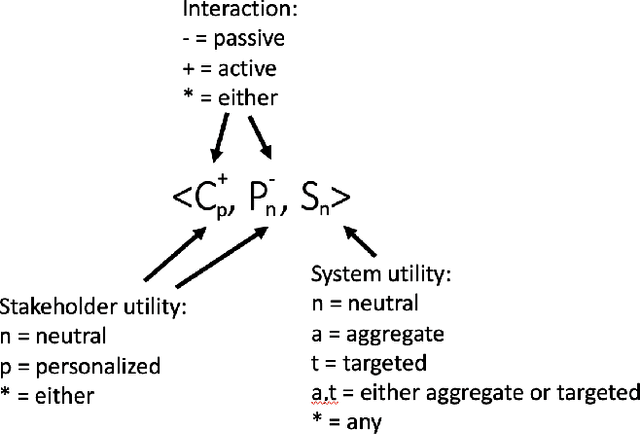
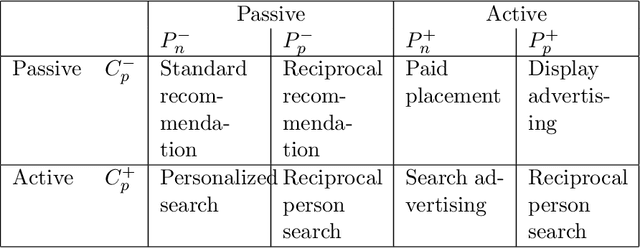
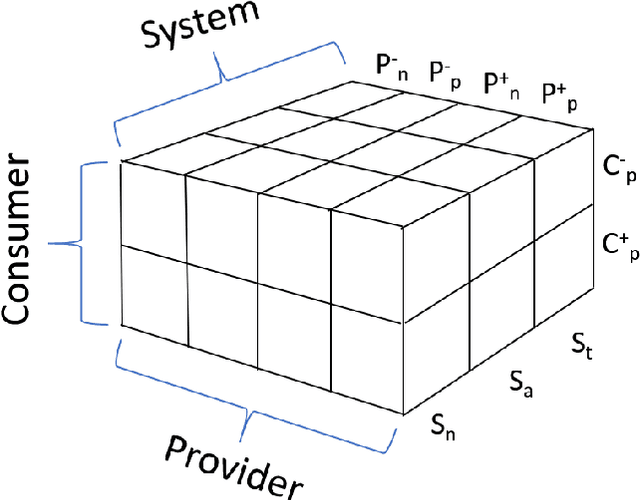
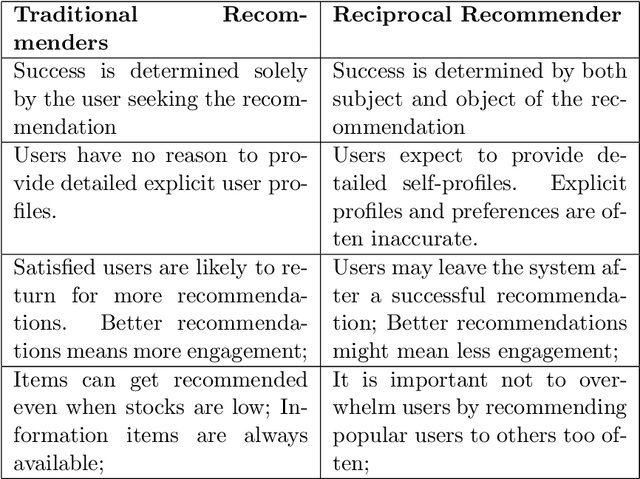
Abstract:Recommender systems are personalized information access applications; they are ubiquitous in today's online environment, and effective at finding items that meet user needs and tastes. As the reach of recommender systems has extended, it has become apparent that the single-minded focus on the user common to academic research has obscured other important aspects of recommendation outcomes. Properties such as fairness, balance, profitability, and reciprocity are not captured by typical metrics for recommender system evaluation. The concept of multistakeholder recommendation has emerged as a unifying framework for describing and understanding recommendation settings where the end user is not the sole focus. This article describes the origins of multistakeholder recommendation, and the landscape of system designs. It provides illustrative examples of current research, as well as outlining open questions and research directions for the field.
 Add to Chrome
Add to Chrome Add to Firefox
Add to Firefox Add to Edge
Add to Edge